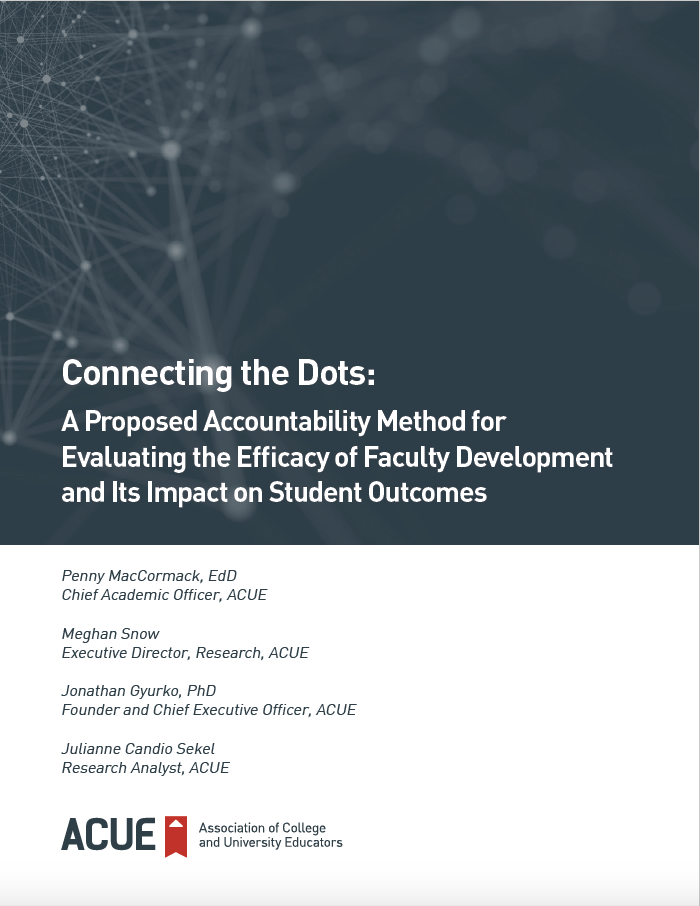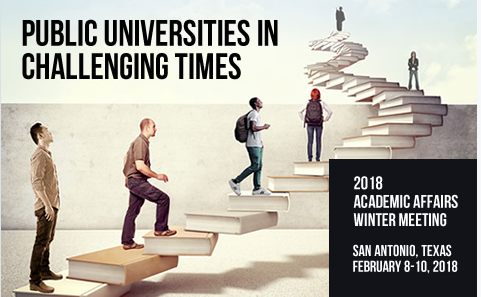
A Research-Based Methodology for Evaluating the Efficacy of Faculty Development on Student Outcomes
How do we know? It’s the epistemological question that animates our entire enterprise and has particular relevance for student learning. How do we know if students are learning what we expect? And how do we know if we’re refining our teaching in ways that promote deeper levels of learning and persistence to graduation and that prepare students for purposeful lives and careers?
The importance of these questions has been elevated in recent months by numerous reports calling on higher education to prioritize undergraduate teaching, in STEM and other fields, and ensure that we prize the quality of education alongside national attention to the quantity of degrees awarded. Leadership by the faculty development community also brought these issues to the forefront, making the ways we assess impact a focus of their annual conference.
As our contribution to this important conversation, ACUE is pleased to release Connecting the Dots: A Proposed Accountability Method for Evaluating the Efficacy of Faculty Development and Its Impact on Student Outcomes. The paper presents a research-based approach to evaluating the effects of faculty development on changes in teaching practices and the consequent impact on both student and institutional outcomes. ACUE developed and refined this approach with our college and university partners nationwide, where it is in use to estimate the effects of faculty credentialed through our courses in effective teaching practices.
The proposed six-level evaluation method is grounded in the industry training model developed by Kirkpatrick and Kirkpatrick and informed by Guskey’s and Hines’s application to educational settings. This framework recommends evaluating changes across six successive levels: in faculty engagement, faculty learning, and faculty implementation of evidence-based practices followed by changes in student engagement, course-level student outcomes, and, ultimately, institutional outcomes.
Given the complex nature of social science research, we recognize that no approach can fully control for the many influences on a students’ college career. But the heightened accountability on higher education to improve organizational outcomes requires that we analyze teaching and learning with as much sophistication as any other research agenda. With today’s proposed methodology, we seek to further demonstrate the fundamental connection between teaching and learning and reaffirm the indispensable contribution made by our faculty toward their students’ success.


